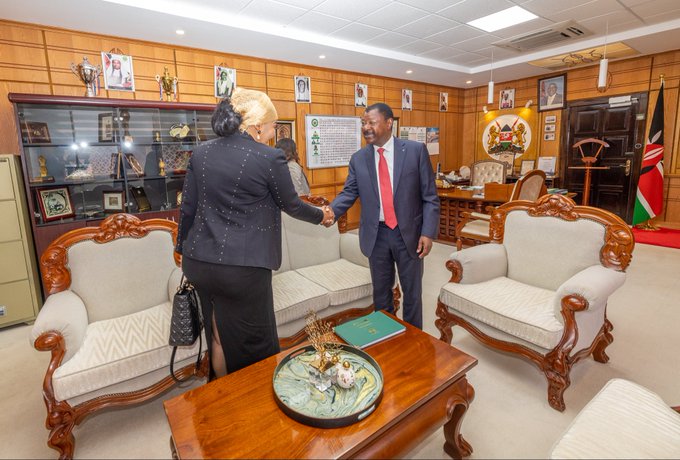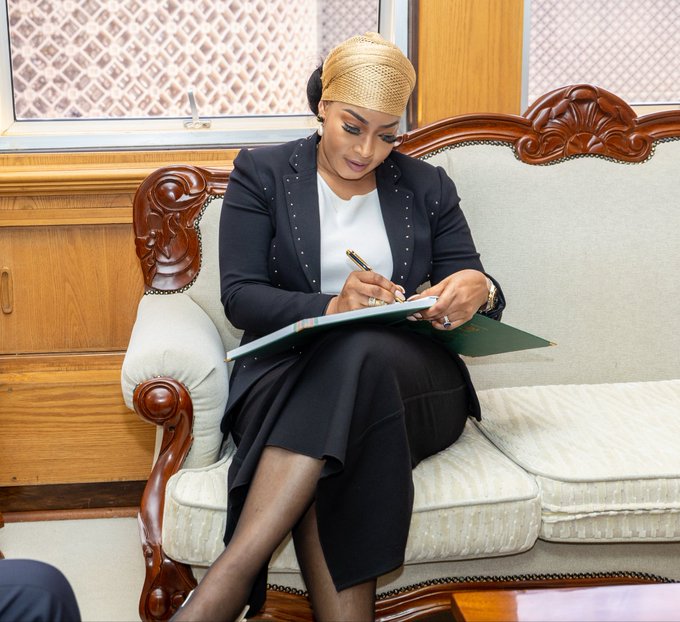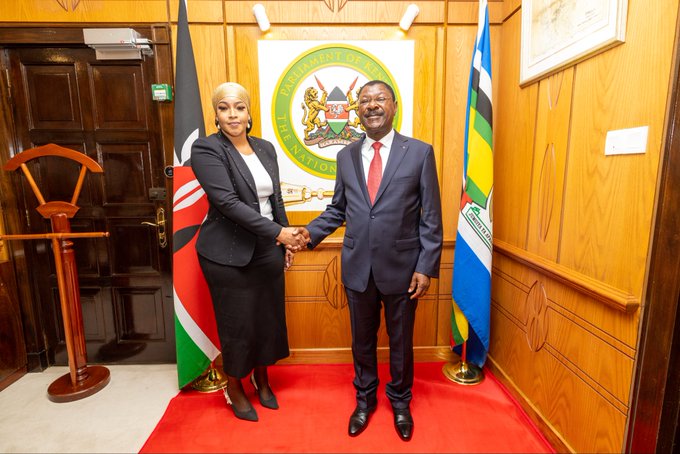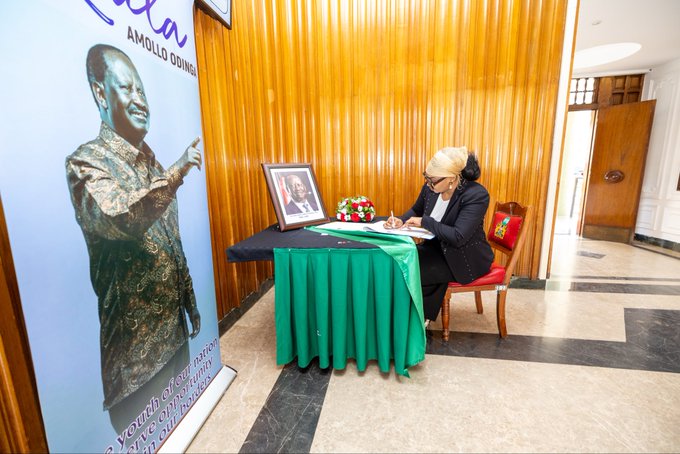NAIROBI, Kenya — In a solemn gesture of solidarity and remembrance, Speaker of the National Assembly Moses Wetang’ula hosted Elizabeth Tsvangirai, widow of Zimbabwe’s late opposition leader Morgan Tsvangirai, in his parliamentary office today.
Their meeting, taking place amid Kenya’s national mourning for the late Raila Amolo Odinga, evoked the deep bond once shared by Odinga and Tsvangirai in their pursuit of democracy, social justice, and pan-African solidarity.
Wetang’ula described the gathering as a tribute to two towering statesmen whose alliance transcended national boundaries.
“We reflected on the enduring friendship and solidarity that bound Raila Odinga and Morgan Tsvangirai,” he said in his social media post, underscoring the symbolic weight of the encounter.
Tsvangirai visited Kenya shortly after attending Odinga’s burial in Bondo, where she joined thousands in honoring his impact and mourned alongside Kenyans.
In signing the condolence book, she extended heartfelt sympathies to the country, expressing her grief at the loss of a close family ally and cherished friend.
Her remarks acknowledged the kinship between the Odinga and Tsvangirai families, rooted in shared political struggle, exile, resistance, and vision.
This morning, I had the honour of meeting Ms. Elizabeth Tsvangirai, the widow of Zimbabwe’s late Prime Minister and opposition leader, Rt. Hon. Morgan Tsvangirai, in my office at Parliament Buildings.Together, we reflected on the enduring friendship and solidarity that once
She told Kenyans she stood with them in mourning and wished the nation strength and peace during its period of national sorrow.
The visit is laden with political and symbolic resonance. Odinga and Tsvangirai forged a rare alliance across East and Southern Africa in the early 2000s — at a time when opposition unity and democratic resistance were under strain in many countries.
Their relationship represented more than mutual respect: it was a template for cross-border solidarity among pro-democracy movements.
In hosting Tsvangirai, Wetang’ula positioned Kenya not only as a nation paying respects to a fallen leader but as a custodian of the Odinga-Tsvangirai legacy.
It is also an implicit call to remember the principles of accountability, pan-Africanism and democratic courage that both men embodied — at a moment when those values are being tested across the continent.
Observers say the meeting could send a signal to opposition circles in Kenya: that in sorrow must come reflection, in loss must come unity, and in legacy must come resolve.
Whether that translates into concrete political steps may depend on how Kenya’s opposition interprets the moment.
In the twilight of national remembrance, the encounter carries this warning: history will judge not only how we celebrate great figures, but how we carry forward their ideals in action.







